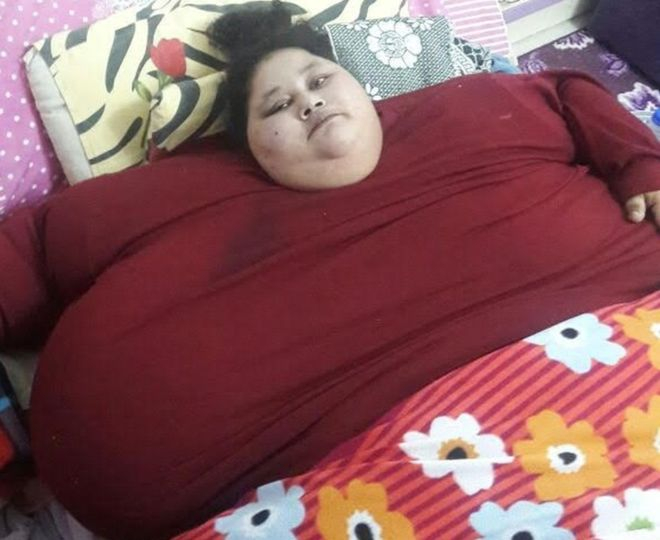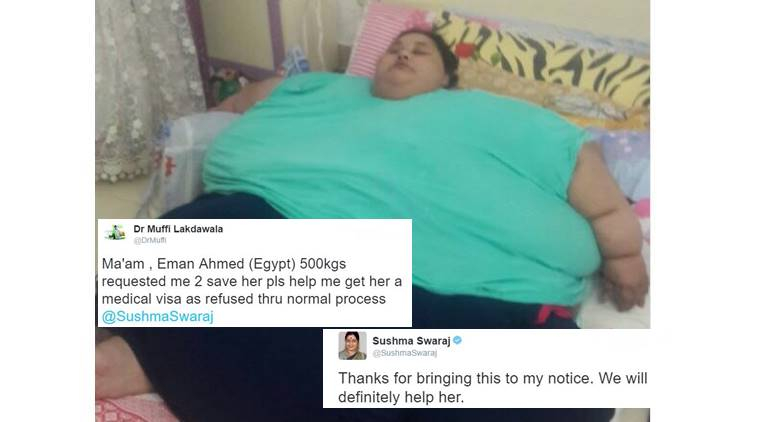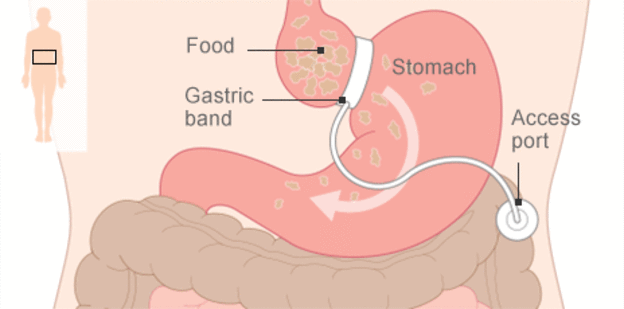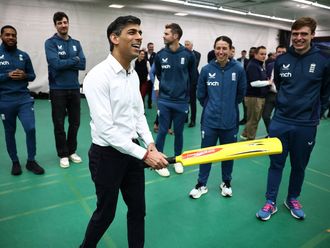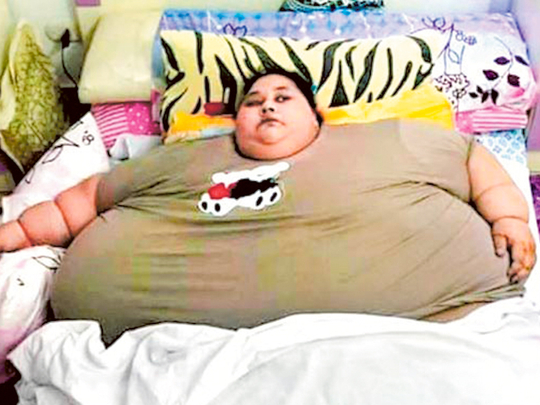
Dubai: For more than two decades, Eman Ahmad Abdul Ati has not left her home in Egypt. But now the 36-year-old woman is set to travel 2,700 miles to Mumbai for potentially life-saving surgery. Abdul Ati weighs 500kg, according to her family.
At that weight, Abdul Ati would be the heaviest woman alive, and close to the heaviest woman ever to live. (At her heaviest, Michigan woman Carol Yager weighed 539kg, according to a 1993 Associated Press report.)
Muffazal Lakdawala, a bariatric surgeon at the Center for Obesity and Digestive Surgery in Mumbai, will operate on Abdul Ati. The doctor has performed the most single-incision laparoscopic surgeries, a minimally-invasive procedure that relies on video cameras threaded into the body, in the world, according to his bio on the medical centre’s website. The Times of India reported that Lakdawala has operated on high-ranking Indian politicians, including two ministers in India’s cabinet.
Lakdawala said he has operated on patients above 300kg before, but Abdul Ati’s surgery will be “very high risk.”
Abdul Ati’s sister contacted Lakdawala after Egyptian doctors determined there was little they could do for the bedridden woman. When Lakdawala received her photograph, as the surgeon said by phone early Thursday, he was stunned.
“My initial reaction was, ‘How is she even alive?’” Lakdawala said. But he was determined to help. “If I can somehow use whatever God-gifted talent I have to save her,” he said, “I must try.”
Her family told the doctor that as a child she was diagnosed with elephantiasis, a condition that causes the limbs and other body parts to swell, leaving her almost immobile.
Later she suffered a stroke and was rendered bedridden, triggering a series of ailments including diabetes, high blood pressure, hypertension and sleep apnoea.
To operate on patients with extreme weight, even transportation is an obstacle. In 2014, a crane was required to move the then-heaviest man in the world, Manuel Uribe, to a hospital. Taking Abdul Ati out of her home will likely require the demolition of a wall in her room, Lakdawala said
And Abdul Ati’s case has already faced hurdles. Getting a visa from the Indian Embassy in Cairo threatened to halt Abdul Ati’s voyage, because it required visiting the embassy for fingerprinting. So Lakdawala petitioned Sushma Swaraj, India’s Minister of External Affairs, on Twitter. Abdul Ati received her medical visa shortly thereafter. The doctor said he is now communicating with commercial airlines to find a plane with an entrance that can accommodate Abdul Ati. He anticipates she will fly to Mumbai within a week to 10 days.
Indian news outlets reported that the trip would cost her close to 2 million Indian rupees (Dh108,810).
The doctors reached out to air ambulance services but were informed that the door of the aircraft wasn’t big enough to accommodate Abdul Ati.
“It will be easier to transport her in a commercial flight, considering her weight. They can adjust nine seats in the flight tail and put the stretcher there, but it’s possible some more modification will be required,” Dr Samir Gokani from Ambucare, who was approached by Dr Lakdawala to airlift Abdulati from Egypt, told NDTV.
As for the medical procedure itself, which Lakdawala said he is performing pro bono, he does not know yet exactly what he will do. Abdul Ati’s medical records are sparse. But he believes the weight-loss surgery will help her lose at least 200 to 300 pounds.
He also anticipates Abdul Ati will need to remain in Mumbai for months as she recovers. “In every sense she’s a challenge,” Lakdawala said. “This is a challenge not just for my skill set but for my team.”
“I would be lying if I said I was 100 per cent confident. There are many challenges, but I will try my level best to help her,” he told AFP by phone.
Abdul Ati would need a couple of months in post-surgery care in India before heading back home in Egypt, he said.
Bariatric surgery is essentially a stomach-shrinking bypass procedure carried out on those wanting to lose excessive weight.
It is increasingly common in India, which has a growing problem with obesity, particularly in urban areas.
India is a key destination for medical tourists because it offers quality services at a fraction of the cost of western countries and no waiting lists.
— With inputs from AFP


